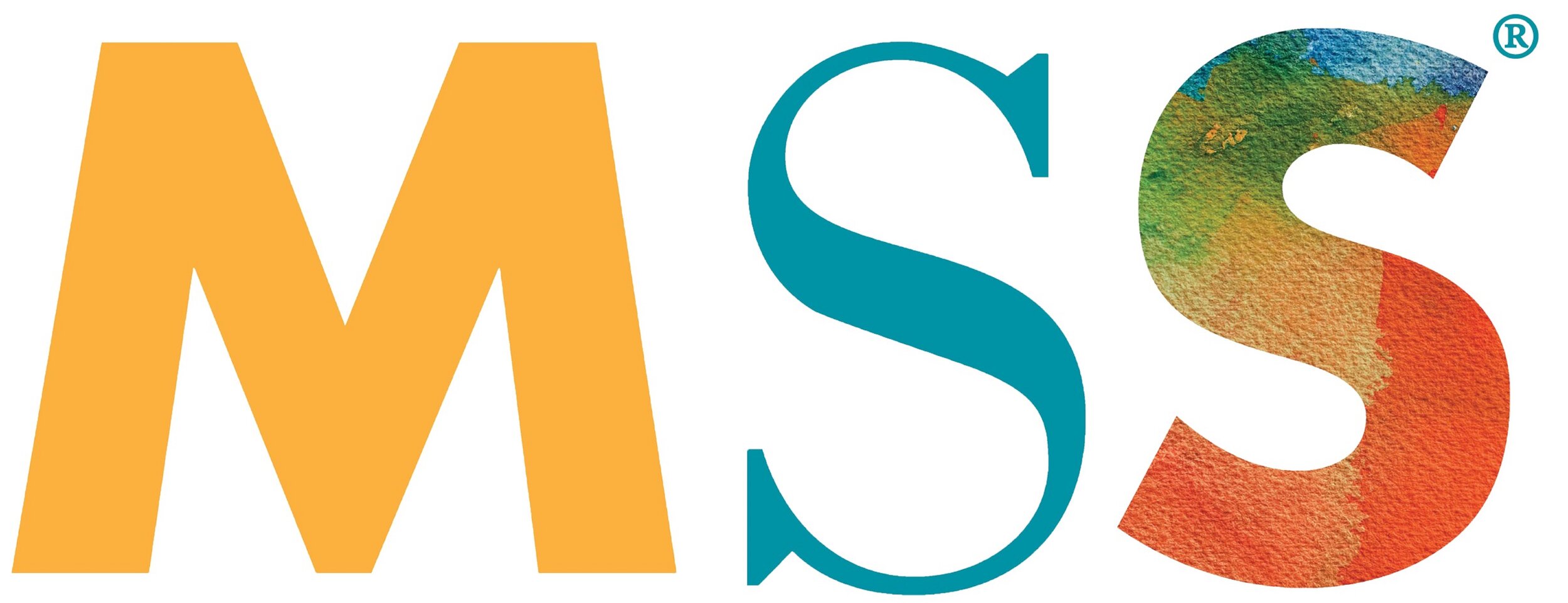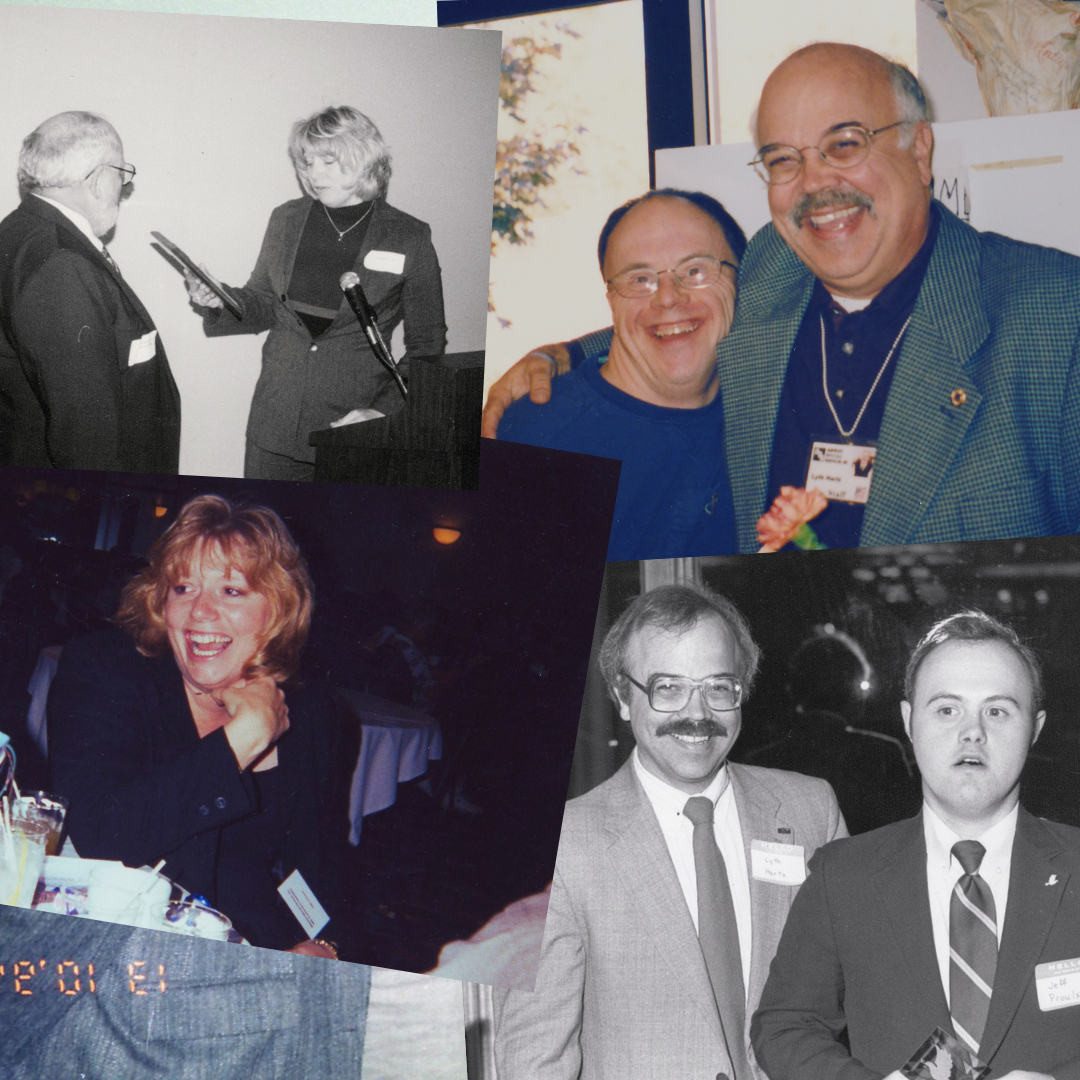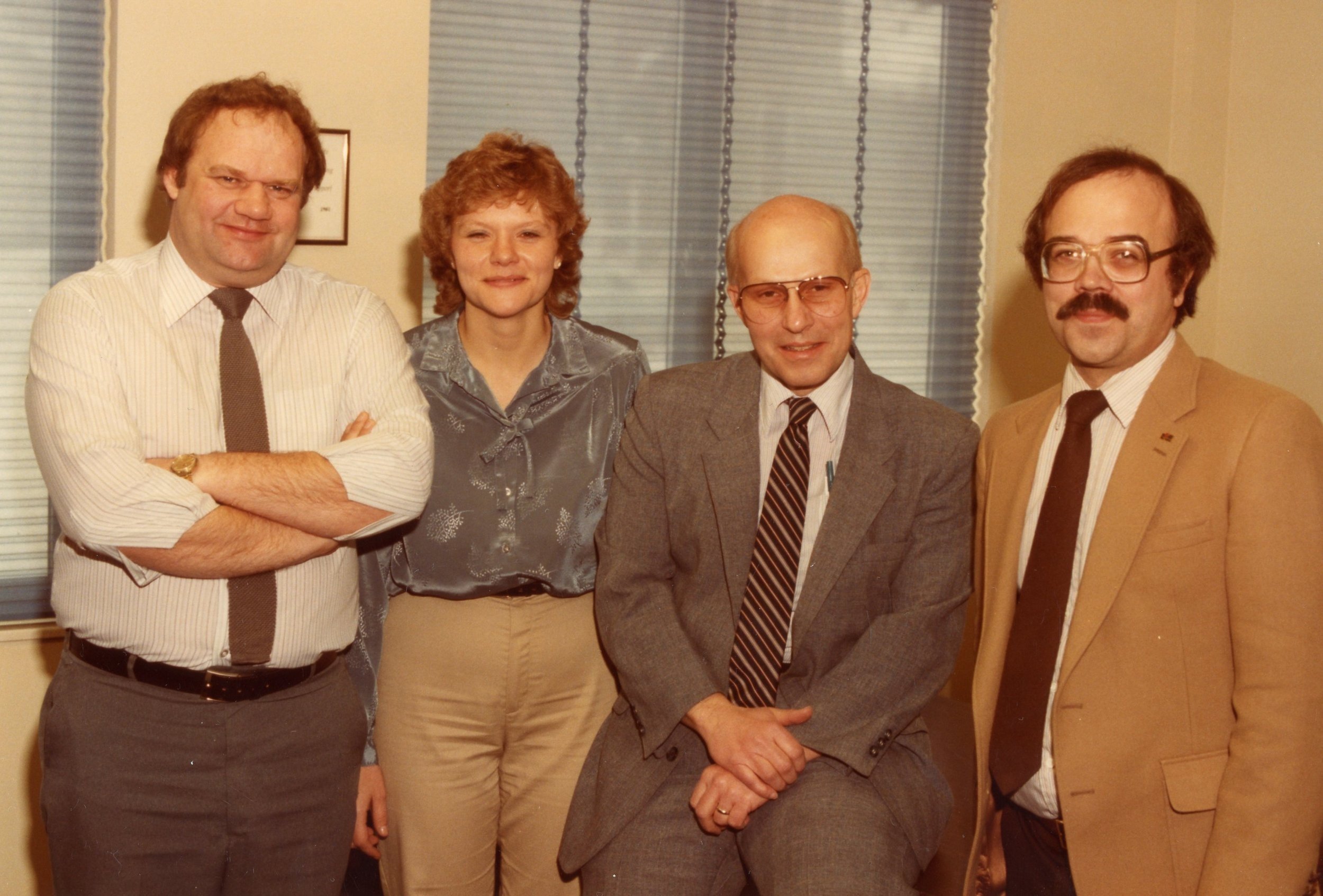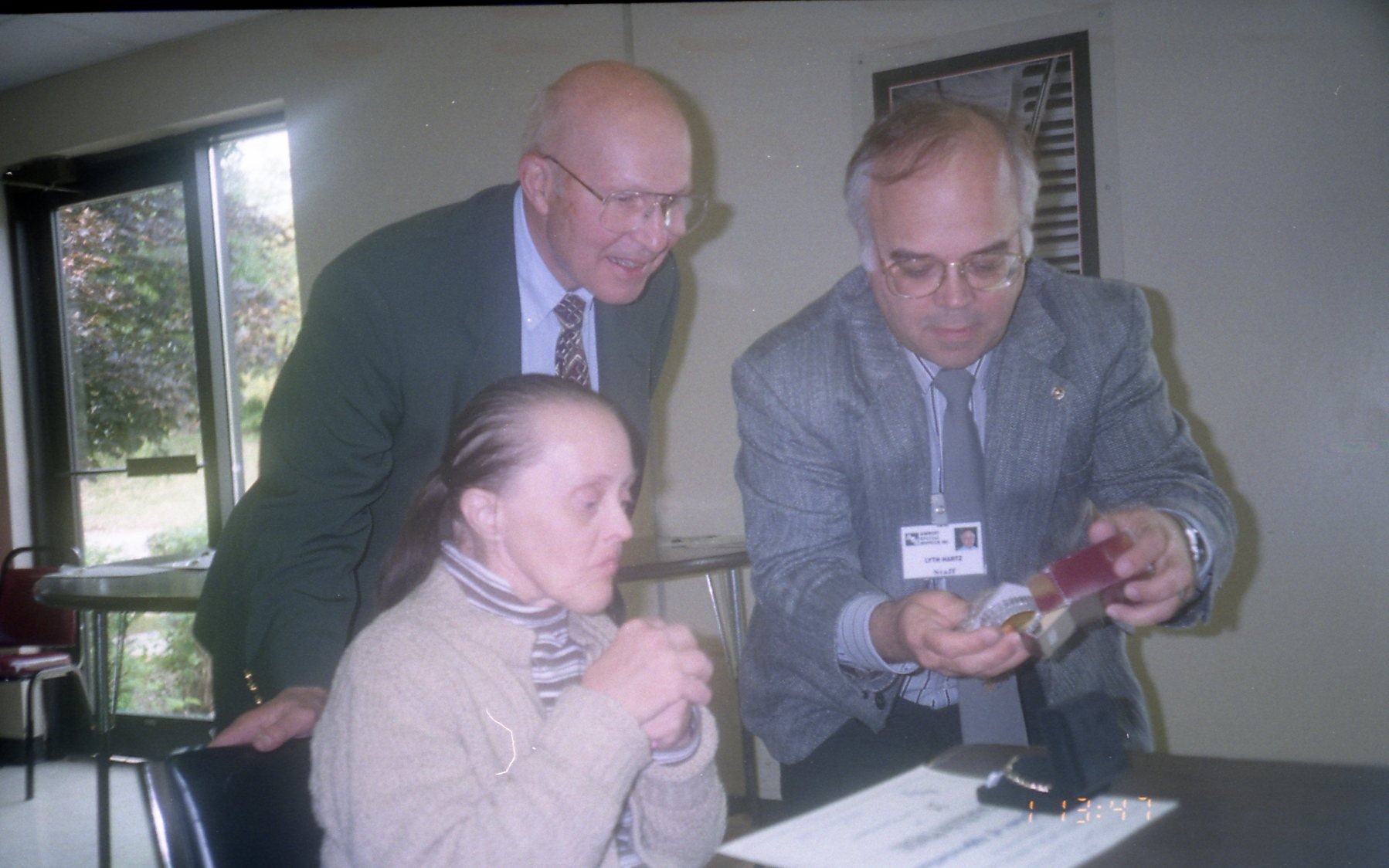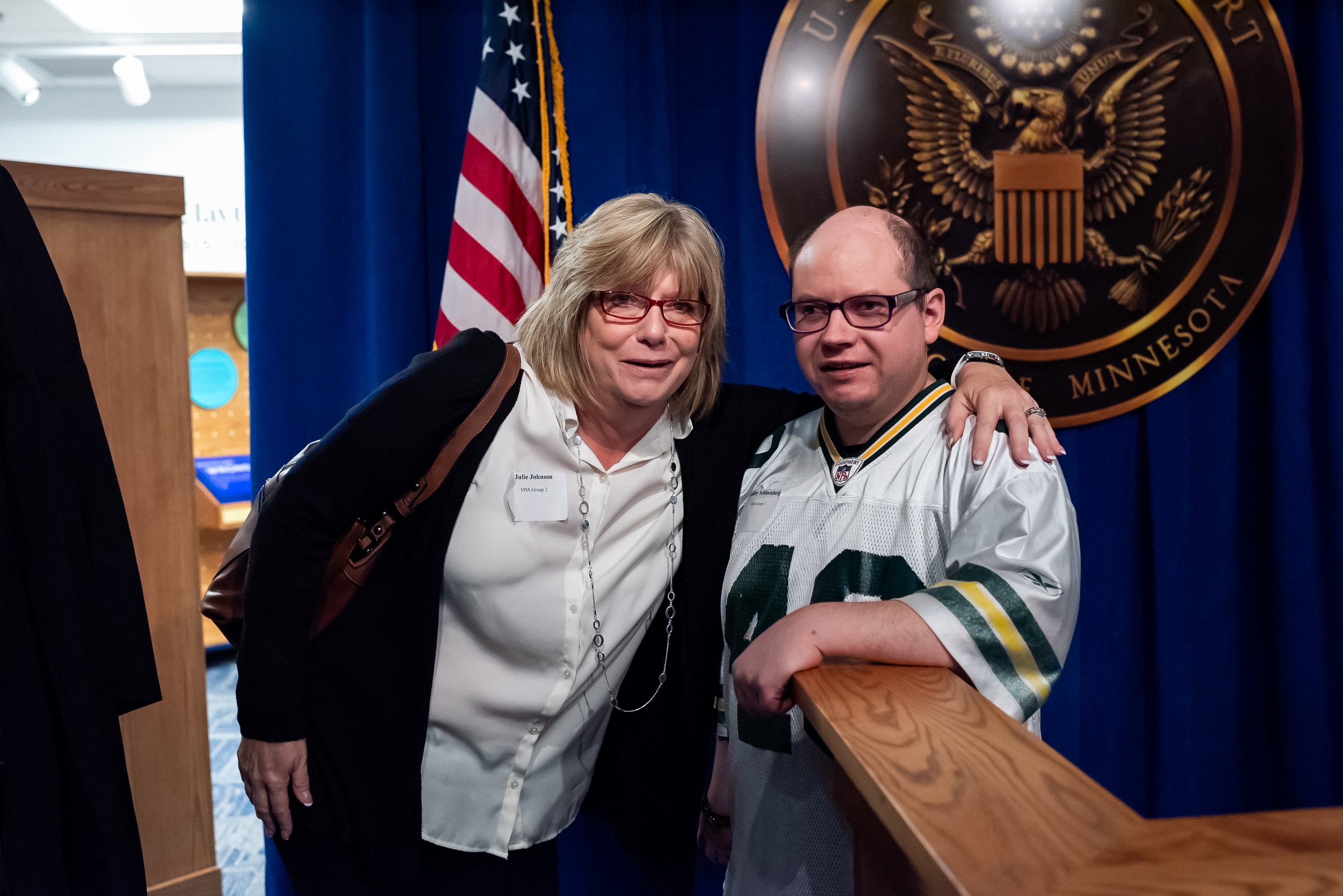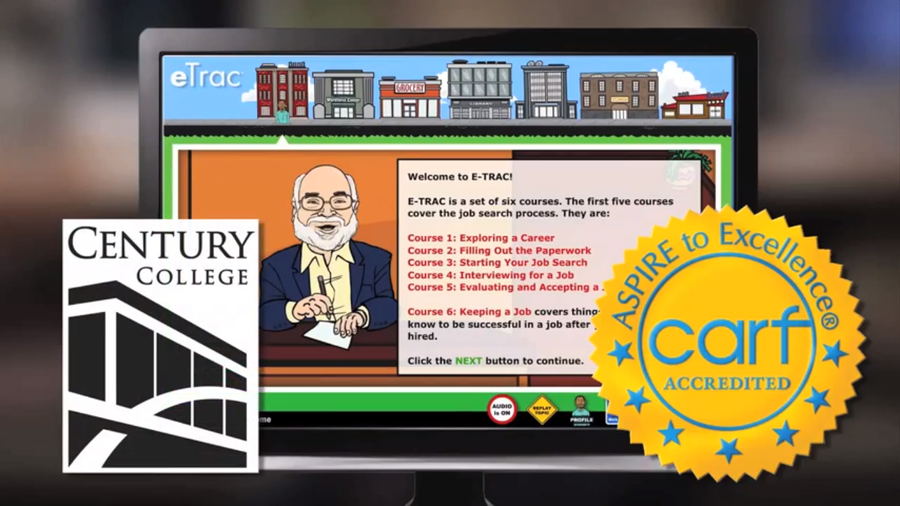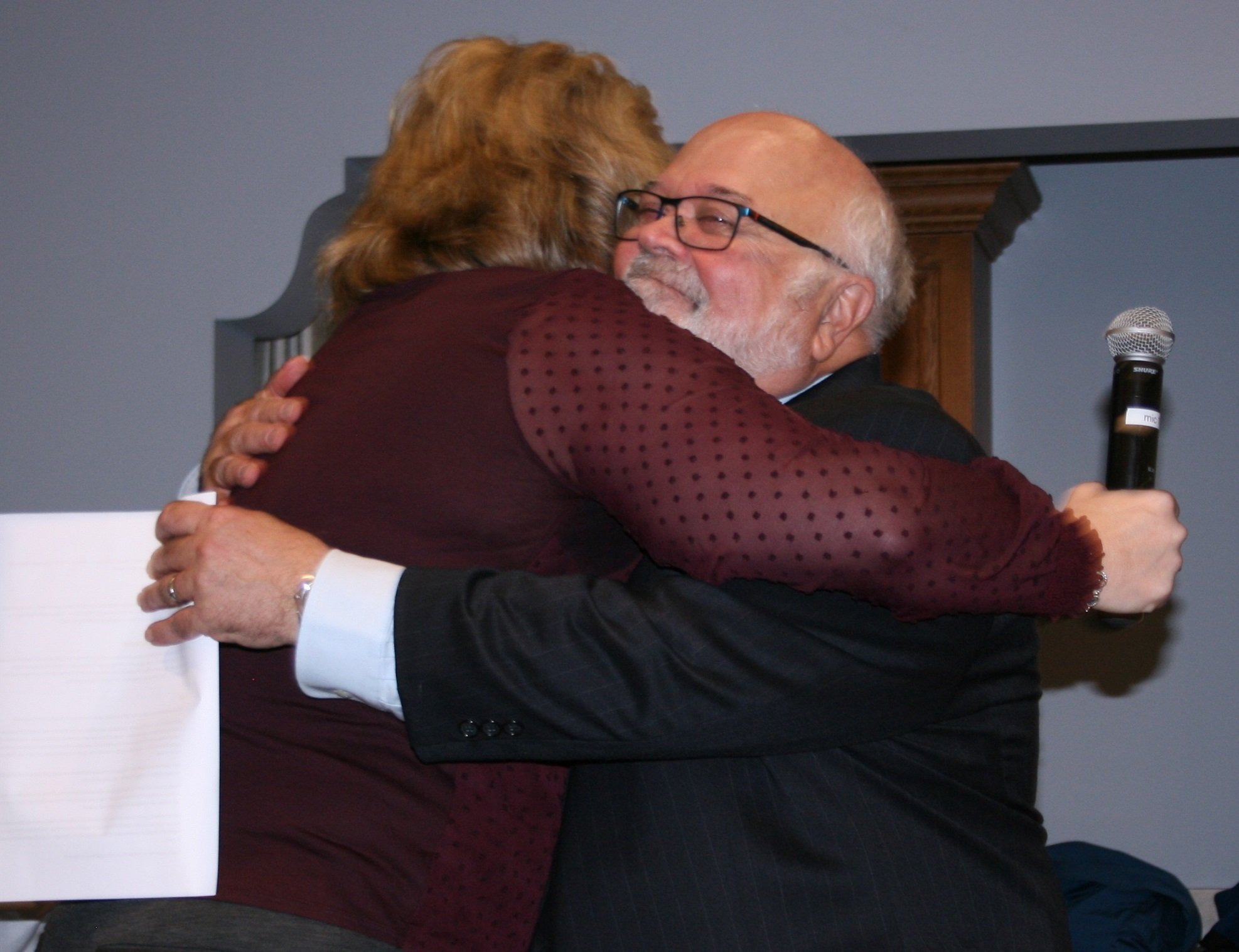"Best Job I Ever Had": A Conversation With Julie Johnson & Lyth Hartz
2024 marks an incredible 75 years since the founding of our agency. As part of our celebration of this community's past, present, and future, we'll be sharing highlights from our unique history each month.
One of the first things Julie told me about her predecessor, Lyth Hartz, was how he liked to introduce himself: "My name is Lyth, and I am fun to be with." Upon meeting the former president, I found this to be true. It seems to hold true for Julie, too, who can still laugh at Lyth's stories even after nearly thirty years of working together.
During this time, the two presidents witnessed incredible changes take place at MSS and in our field more broadly. Expectations around the living conditions of people with disabilities were shifting, adaptive technologies were improving, and laws were finally being introduced to protect the human dignity of all people. As the century came to a close, MSS had the opportunity to change with the times, or fall behind. According to Lyth, it was an easy decision: "the people we served were just plain worth it."
Lyth started at MSS in 1979 as our Vice President of Program Services. At the time, MSS offered day services for both adults and children. Although the Education for All Handicapped Children Act of 1975 allowed children with disabilities to be integrated into the public school system, many children were still lacking the support they needed. "It took a really long time for that to really come to fruition the way it was intended to," says Julie. Lyth's first assignment was to lead MSS's transition away from its youth programming and ensure that the children in our programs would be adequately supported elsewhere.
"We had about 50 clients. There was a time when I could name them all without looking at a roster," Lyth recalled.
As one segment of our organization closed its doors, opportunities for expansion were right around the corner. The same rallying cry that was transforming the public school system for people with disabilities was now calling for an end to institutional facilities. The 1980s saw the closures of many institutions in favor of person-centered, community-based services like MSS.
"One thing that I think we do really, really well is find ways to engage people who may just be sitting and not engaged with people somewhere else," says Julie. Lyth points to the closures of Faribault and Cambridge State Institution, in particular, leading to an influx of new referrals to our programs. These closures would prompt us to open our Burnsville, Plymouth, and Brooklyn Park locations in the years that followed.
Julie began as a receptionist at MSS St. Paul in 1990 and soon took over a number of roles in our accounting department. Lyth took over as president in 2000, preceded by Gene O'Neil. With growing demand for our services, an expanding lineup of locations, and increasingly complicated funding arrangements, MSS leadership had their hands full. "I learned a lot from Lyth," Julie says. "I had no idea what I was walking into until I got here."
Lyth, on the other hand, was happy to have Julie to depend upon: "I've said for many years that I provided leadership by staying out of the way," he says with a laugh. The prime example was our expanded arts program, later rebranded as Fresh Eye Arts. Lyth credits Julie and Michelle Dickerson for quietly building up the role of art at MSS—from a creative outlet to a viable employment option for people in our programs.
"We got forgiveness there instead of total permission," Julie says of the early arts program. Today, MSS remains one of only a few providers in Minnesota offering opportunities for employment in the arts. In the future, Julie hopes to expand this aspect of our services beyond just art, offering other paths for employment in nontraditional business areas. "If we can do what we've done for artists and widen that to include: if I want to have a food truck, if I want to have a cookie business," she says. "Just finding other ways to make money, be a part of the economy, and really contribute to the community."
Developing our eTrac software, an online job training program for people with disabilities, was another proud moment from Lyth's tenure. Lyth is featured prominently throughout the program—albeit in cartoon form—walking participants through a series of educational modules. Since his retirement, Lyth and eTrac have continued to touch people's lives: the software was recently licensed by the State of Minnesota for a number of years, helping to widen its reach beyond MSS.
Looking back on this transformative time in MSS's history, Lyth and Julie come to similar conclusions. "Best job I ever had," Lyth says definitively. When asked how it felt to have Julie as a successor, he adds: "Best recruiting job I ever did."
"There is no better job than having the opportunity to watch the true joy in people who are engaged in a program and thriving," Julie says. "You get really connected to the people in the programs, you get connected to the staff. It's a really rewarding place to be."
We will be holding our 75th anniversary celebration on Thursday, July 25th at Mendakota Country Club. Mark your calendars!
